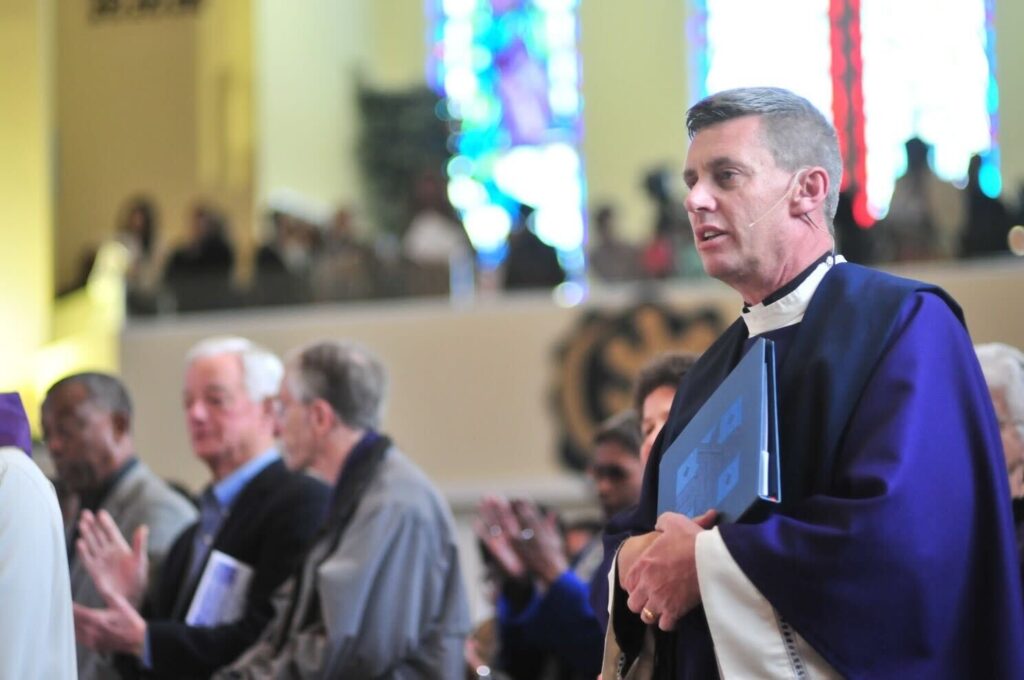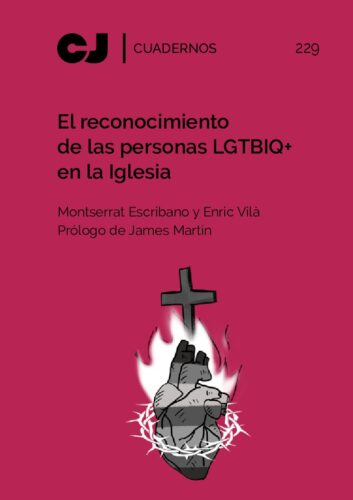In June 2005, as I laid on the floor of St. Patrick’s Church during my ordination to the priesthood in Banbridge, a town in Northern Ireland, I knew that deep down, in every fiber of my being, I was called to serve as a priest. In that sacred space, I had been baptized, received my First Communion, served as an altar boy, run the youth group and participated in the funerals for my family members. It was not simply a part of me that was being ordained; it was my whole existence.
Life came full circle when I was privileged to concelebrate my first Mass at Christ the King Parish in the Diocese of Oakland, Calif. At that Mass, I told the congregation I had just been invited by the chancery to participate in an “accent-reduction class.” I also told the parishioners that I would not be going to the class and that I was perfectly happy with my Irish accent. When they cheered loudly, I knew I was home.
Over my 20 years of ministry, I have made a point to schedule an appointment with each of the four men who served as my bishops to tell them my story. Each bishop, in his own way, would ask the same question: “Why are you telling me this?” My reply was the same: “Because I don’t want you making decisions about my life as a priest in the diocese based on any one aspect of who I am.”
I needed my bishops to understand my whole story. I needed them to see and hear me.
I told them I was a gay man who, before joining the priesthood, had been in an 11-year relationship. I needed them to understand my whole story. I needed them to see and hear me. My brother priests in my support group thought I was crazy. But there was some part of me that didn’t care, and I knew deep down it was important to be honest and open.
The parish in which I have served over these last 15 years is primarily Black, and places a strong emphasis on anti-racism, social justice, servant leadership and activism. It is very much a post-Vatican II parish in the Black spiritual tradition. I love the people and I know they love me. The doors of our church are open wide to welcome all who walk in. And I mean all!
For the last number of years, we have hosted an LGBTQ preaching series in June. While on a four-month sabbatical, I received an email from a former coworker at Catholic Charities in San Francisco. In it, he referred me to a book that reminded him of my life story. He mailed it to my home for me to read. I read the book, I Came Here Seeking a Person by William D. Glenn, and quickly understood why my friend thought I would relate to it.
I called William, the former president of the San Francisco AIDS Foundation, and asked if he would preach at our parish speaker series. He agreed. On the eve of his preaching, he called me, sick with Covid-19, and apologized. There was nothing else for me to do but to preach myself.
Like anyone else making a big announcement to a group of people whom you’ve come to know and love, I was concerned with the very human fear of rejection.
After all, I was presiding at the Mass, and I have occasionally felt like a sacramental vending machine when I am not preaching, even though I love to hear other voices at the ambo. I explained to the congregation what had happened with William—and then I publicly came out.
I told the community: “I am Aidan. I love you and serve you, and I am every bit the same person who has been serving you for 15 years. I have used every fiber of my being in that service. I do not regret a moment of my life experience. All of it taken together has made me a more human, compassionate and loving minister of the Gospel.”

Like anyone else making a big announcement to a group of people whom you’ve come to know and love, I was concerned with the very human fear of rejection. But the congregation had come to love me, as myself. Deep down, I had a real sense that “all shall be well,” as Blessed Julian of Norwich said.
After I made the announcement, I looked into the congregation, and there were many LGBTQ people in tears. At the end of the homily, the congregation rose in rapturous applause.
What changed after my homily? Honestly, nothing changed in the life of the parish.
But with time, I saw how my announcement had actually increased the bond between the parish and myself. And it allowed us all to be more welcoming.
I saw how my announcement had actually increased the bond between the parish and myself. And it allowed us all to be more welcoming.
After the publication of “Fiducia Supplicans” last December, when the Vatican allowed church ministers to bless same-sex couples, my coming out made this process easier in our parish. That day we all cried tears of joy and love.
I had a spring in my step and a deeper sense of freedom. I absolutely love being a priest and a pastor, and I continue to feel at home in my own skin. In the end, I think it serves us all to be authentically ourselves, just as God has made us.




